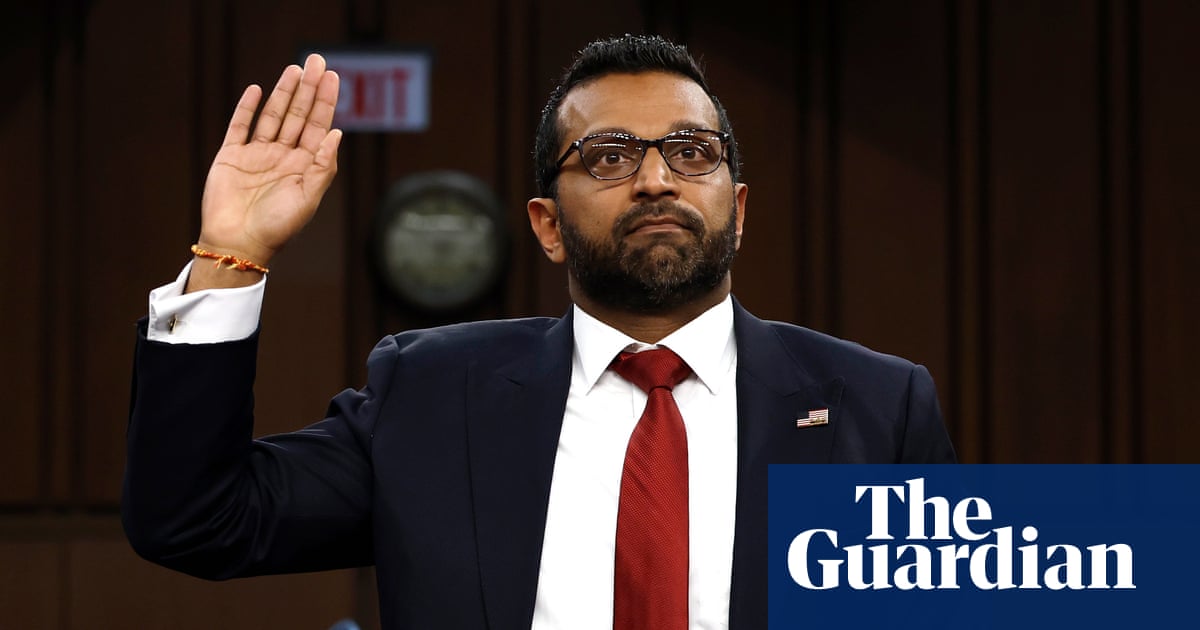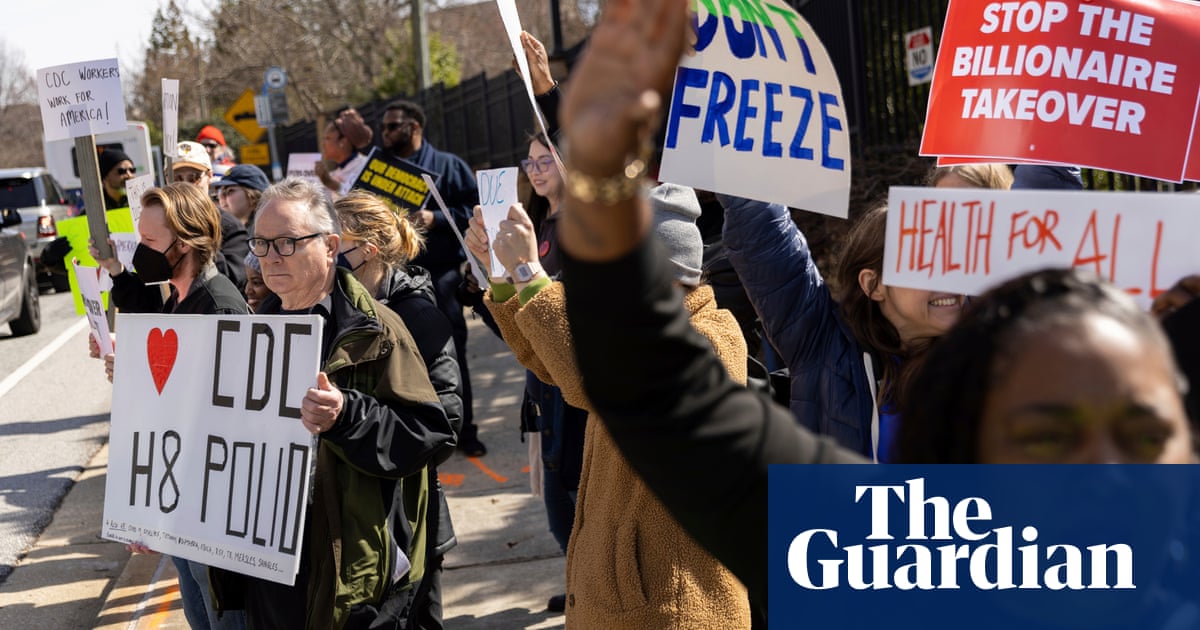Though we might find it hard to imagine, we cannot now rule it out: the possibility of systemic collapse in the United States. The degradation of federal government by Donald Trump and Elon Musk could trigger a series of converging and compounding crises, leading to social, financial and industrial failure.
There are several possible mechanisms. Let’s start with an obvious one: their assault on financial regulation. Trump’s appointee to the US Consumer Financial Protection Bureau (CFPB), Russell Vought, has suspended all the agency’s activity, slashed its budget and could be pursuing Musk’s ambition to “delete” the bureau. The CFPB was established by Congress after the 2008 financial crisis, to protect people from the predatory activity that helped trigger the crash. The signal to the financial sector could not be clearer: “Fill your boots, boys.” A financial crisis in the US would immediately become a global crisis.
But the hazards extend much further. Musk, calling for a “wholesale removal of regulations”, sends his child soldiers to attack government departments stabilising the entire US system. Regulations, though endlessly maligned by corporate and oligarchic propaganda, are all that protect us from multiple disasters. In its initial impacts, deregulation is class war, hitting the poorest and the middle classes at the behest of the rich. As the effects proliferate, it becomes an assault on everyone’s wellbeing.
To give a couple of examples, the fires in Los Angeles this year are expected to cost, on various estimates, between $28bn and $75bn in insured losses alone. Estimates of total losses range from $160bn to $275bn. These immense costs are likely to be dwarfed by future climate disasters. As Trump rips down environmental protections and trashes federal responsiveness, the impacts will spiral. They could include non-linear shocks to either the insurance sector or homeowners, escalating into US-wide economic and social crisis.
If (or when) another pandemic strikes, which could involve a pathogen more transmissible and even more deadly than Covid-19 (which has so far killed 1.2 million people in the US), it will hit a nation whose defences have been stood down. Basic public health measures, such as vaccination and quarantine, might be inaccessible to most. A pandemic in these circumstances could end millions of lives and cause spontaneous economic shutdown.
Because there is little public understanding of how complex systems operate, collapse tends to take almost everyone by surprise. Complex systems (such as economies and human societies) have characteristics that make them either resilient or fragile. A system that loses its diversity, redundancy, modularity (the degree of compartmentalisation), its “circuit breakers” (such as government regulations) and backup strategies (alternative means of achieving a goal) is less resilient than one which retains these features. So is a system whose processes become synchronised. In a fragile system, shocks can amplify more rapidly and become more transmissible: a disruption in one place proliferates into disaster everywhere. This, as Andy Haldane, former chief economist at the Bank of England, has deftly explained, is what happened to the financial system in 2008.
A consistent feature of globalised capitalism is an unintentional assault on systemic resilience. As corporations pursue similar profit-making strategies, and financialisation and digitisation permeate every enterprise, the economic system loses its diversity and starts to synchronise. As they consolidate, and the biggest conglomerates become hubs to which many other enterprises are connected (think of Amazon or the food and farming giant Cargill), major failures could cascade at astonishing speed.
As every enterprise seeks efficiencies, the system loses its redundancy. As trading rules and physical infrastructure are standardised (think of those identical container terminals, shipping and trucking networks), the system loses both modularity and backup strategies. When a system has lost its resilience, a small external shock can trigger cascading collapse.
Paradoxically, with his trade wars and assault on global standards, Trump could help to desynchronise the system and reintroduce some modularity. But, as he simultaneously rips down circuit breakers, undermines preparedness and treats Earth systems as an enemy to be crushed, the net effect is likely to make human systems more prone to collapse.
At least in the short term, the far right tends to benefit from chaos and disruption: this is another of the feedback loops that can turn a crisis into a catastrophe. Trump presents himself as the hero who will save the nation from the ruptures he has caused, while deflecting the blame on to scapegoats.
Alternatively, if collapse appears imminent, Trump and his team might not wish to respond. Like many of the ultra-rich, key figures in or around the administration entertain the kind of psychopathic fantasies indulged by Ayn Rand in her novels Atlas Shrugged and The Fountainhead, in which plutocrats leave the proles to die in the inferno they’ve created, while they migrate to their New Zealand bunkers, Mars or the ocean floor (forgetting, as they always do, that their wealth, power and survival is entirely dependent on other people). Or they yearn for a different apocalypse, in which the rest of us roast while they party with Jesus in his restored kingdom.
Every government should hope for the best and prepare for the worst. But, as they do with climate and ecological breakdown, freshwater depletion, the possibility of food system collapse, antibiotic resistance and nuclear proliferation, most governments, including the UK’s, now seem to hope for the best and leave it there. So, though there is no substitute for effective government, we must seek to create our own backup systems.
Start with this principle: don’t face your fears alone. Make friends, meet your neighbours, set up support networks, help those who are struggling. Since the dawn of humankind, those with robust social networks have been more resilient than those without.
Discuss what we confront, explore the means by which we might respond. Through neighbourhood networks, start building a deliberative, participatory democracy, to resolve at least some of the issues that can be fixed at the local level. If you can, secure local resources for the community (in England this will be made easier with the forthcoming community right to buy, like Scotland’s).
From democratised neighbourhoods, we might seek to develop a new politics, along the lines proposed by Murray Bookchin, in which decisions are passed upwards, not downwards, with the aim of creating a political system not only more democratic than those we currently suffer, but which also permits more diversity, redundancy and modularity.
Yes, we also – and urgently – need national and global action, brokered by governments. But it’s beginning to look as if no one has our backs. Prepare for the worst.
-
George Monbiot is a Guardian columnist

 German (DE)
German (DE)  English (US)
English (US)  Spanish (ES)
Spanish (ES)  French (FR)
French (FR)  Hindi (IN)
Hindi (IN)  Italian (IT)
Italian (IT)  Russian (RU)
Russian (RU)  2 days ago
2 days ago
























Comments